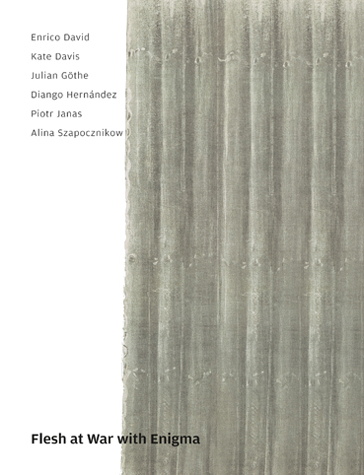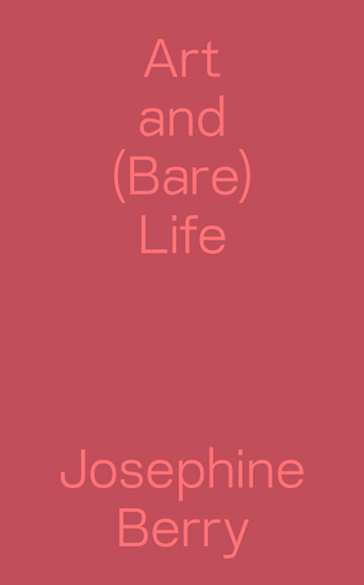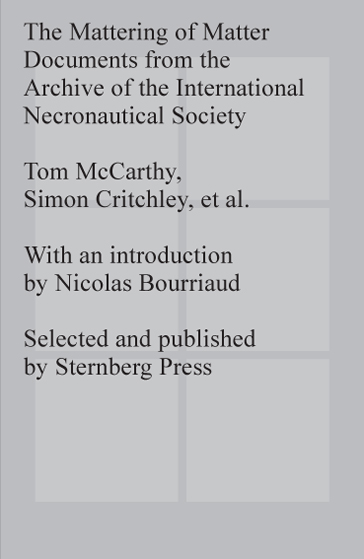Your cart is currently empty.
Cart
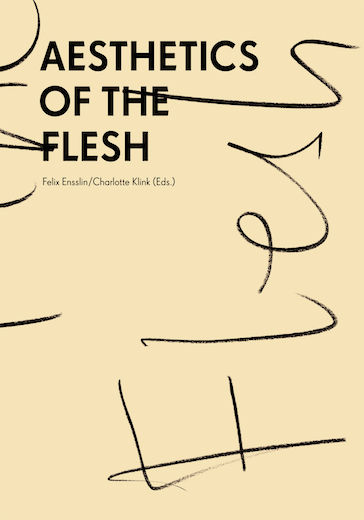
Aesthetics of the Flesh
Contributions by Jennifer Allen, Sabeth Buchmann, Annet Busch, Nils Büttner, Marcus Coelen, Helmut Draxler, Felix Ensslin, Mechthild Fend, Susanne Leeb, Christoph Menke, Frank Ruda, Discoteca Flaming Star, Jan de Vos, Charles T. Wolfe
Word becomes flesh, God becomes pigment, beauty becomes empirical form, power negotiates itself in matter—and vice versa: these are some of the connotations carried by the aesthetics of the flesh.
Flesh has been negotiated with the incarnate, the skin-like surface of paint transcends its material condition toward the embodiment of spirit. But flesh is also, for example, behind the postcolonial metaphor of anthropophago (i.e., incorporating multiple cultural traditions that are at war with each other). It can be further associated with the material of surgery, itself an heir to contradictory impulses—namely, the discourse of modern aesthetics on the one hand, and of a positivist, even naïve scientism on the other. Flesh is the topos of a thought that is unthinkable and the amoral site where force is creative. Philosophically, these primal scenes of the flesh are grouped by Descartes, and also in the radical enlightenment of philosophical materialism. Following on from Cartesian dualism, philosophy is faced with the task of valorizing the flesh beyond the religious support of incarnation. Finally, the never-ending thought which sees the flesh as an unattainable other appears—always present in its absence in each and every aesthetic discourse.
This reader, based on a three-day symposium at the State Academy of Fine Arts, Stuttgart, traces the aesthetic concept of flesh in four sections: “Cut Power Matter,” “Form Cannibalism,” “Flesh Skin Surface,” and “Word Flesh Thought.” From perspectives as diverse as art history, religion, psychoanalysis, psychology, materialist philosophy, phenomenology, surgery, film studies, and literary studies, the articles present this concept, while at the same time showing how it surpasses the attempts to systematize or define it.
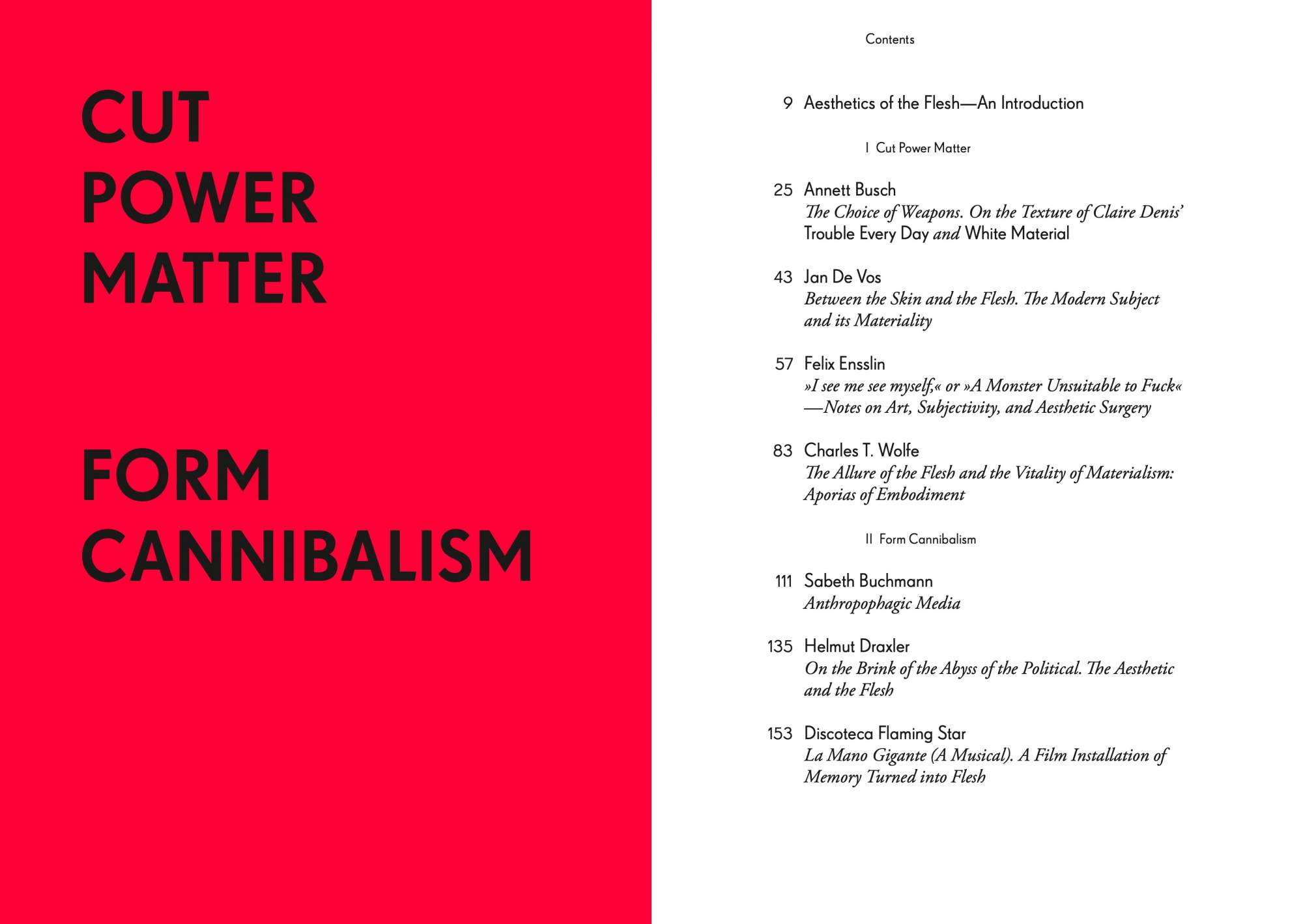
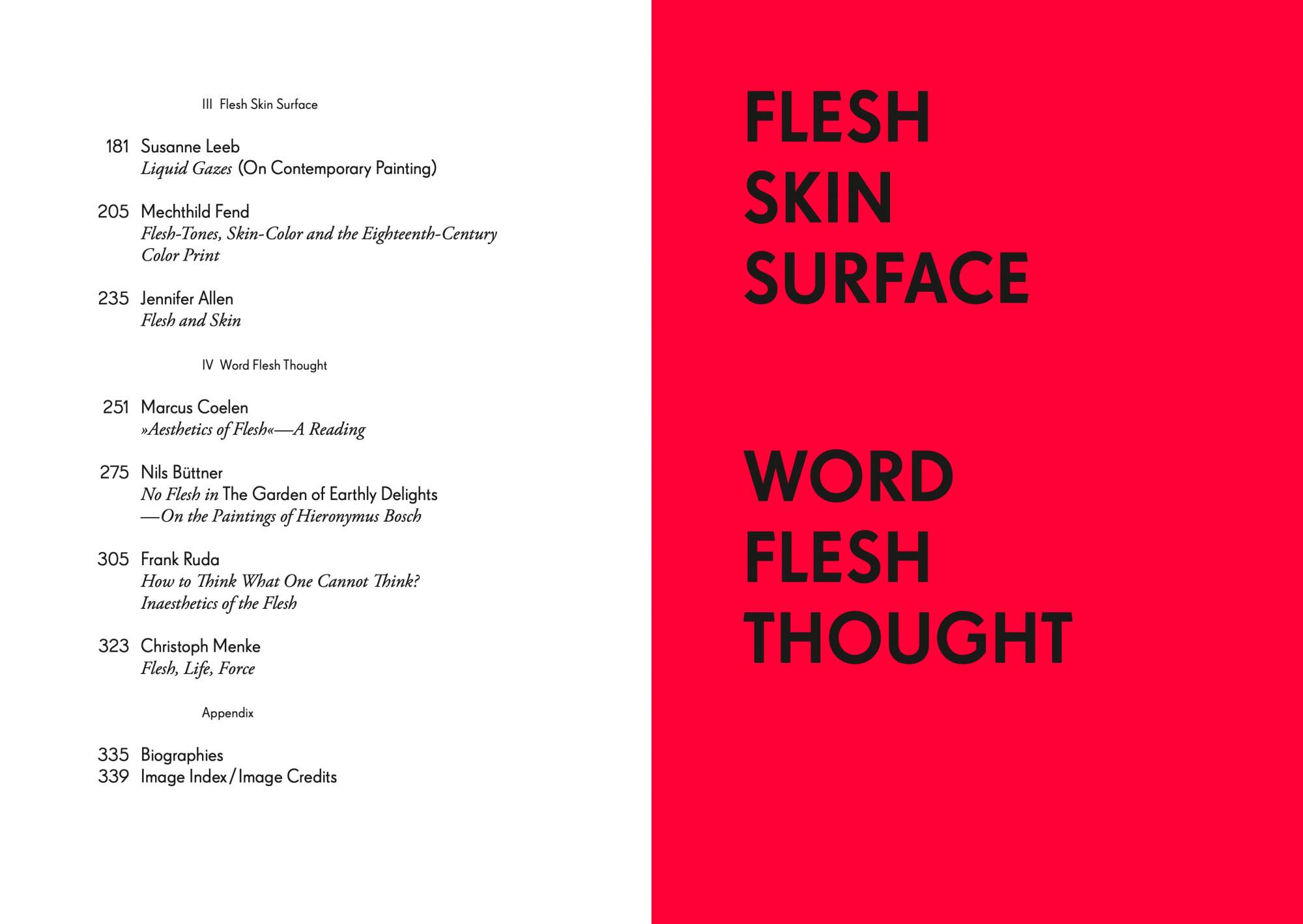
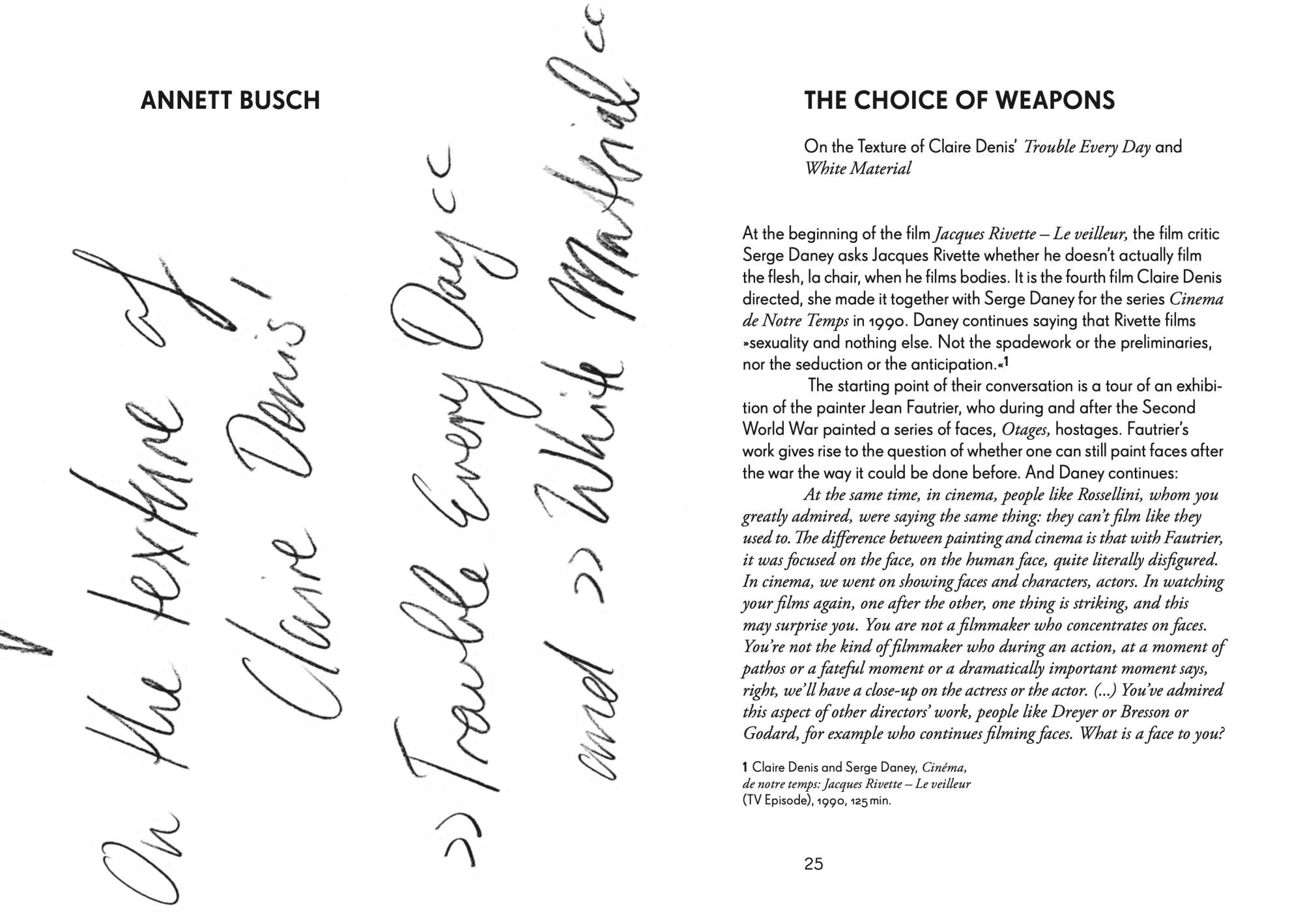

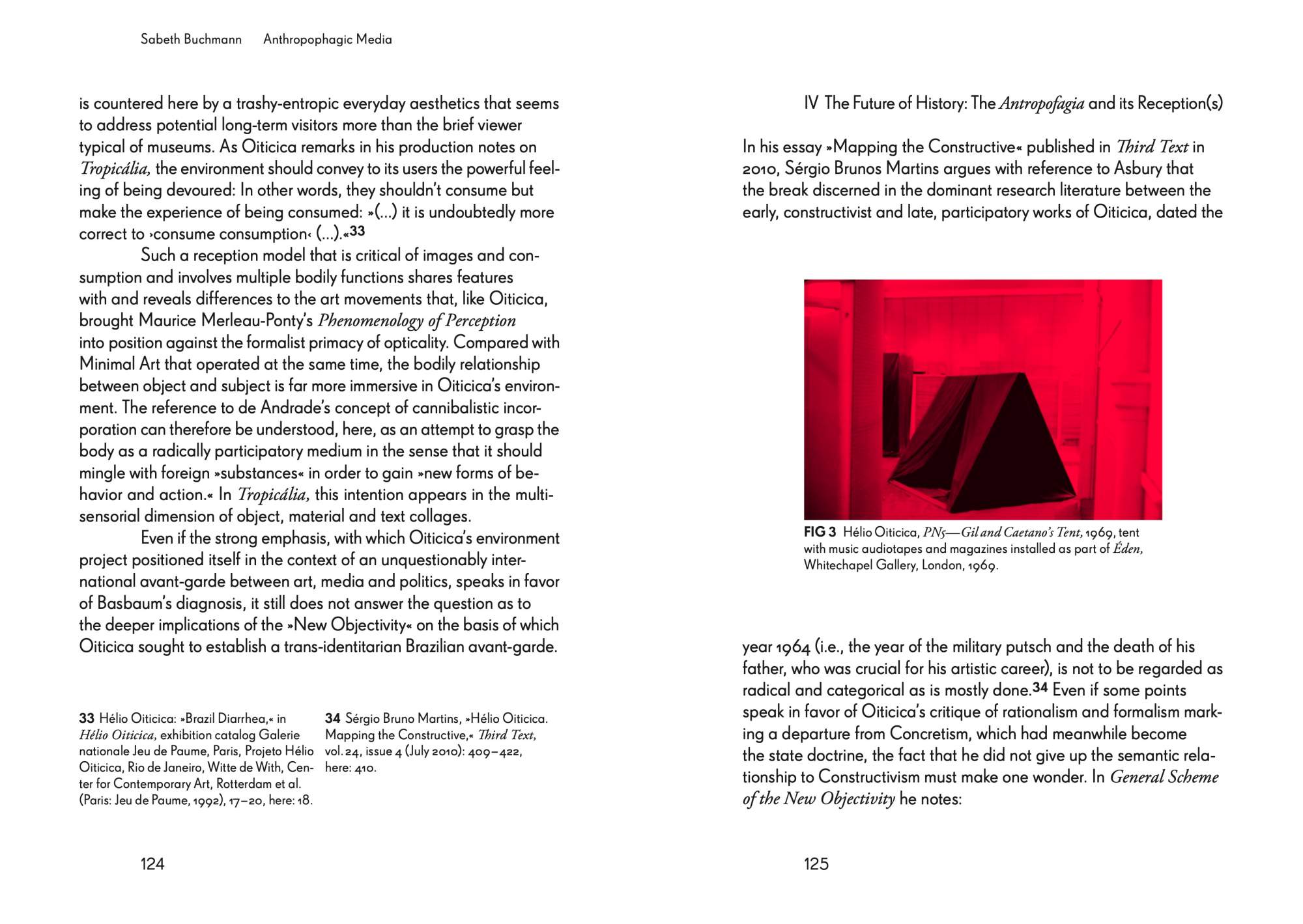
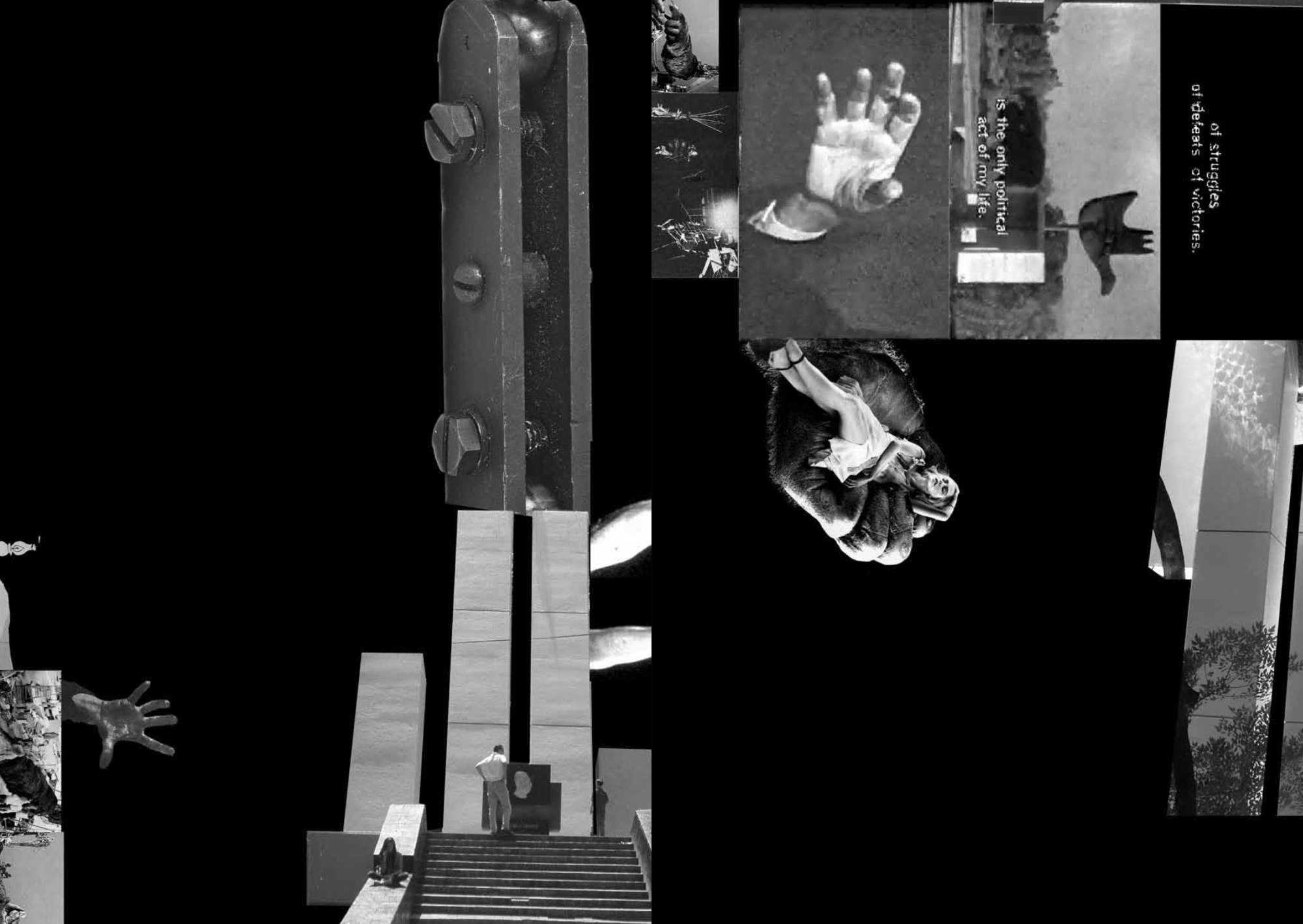
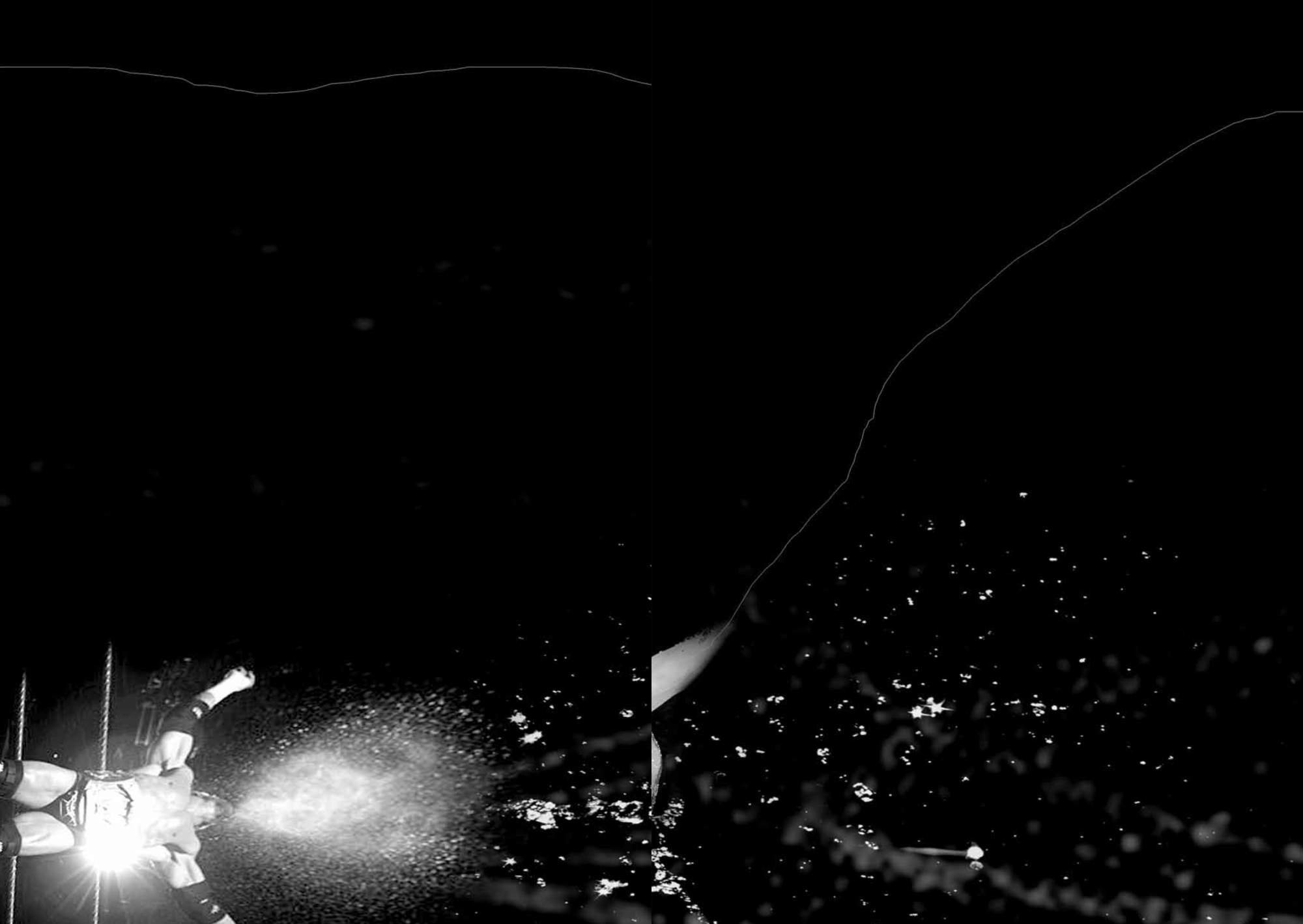
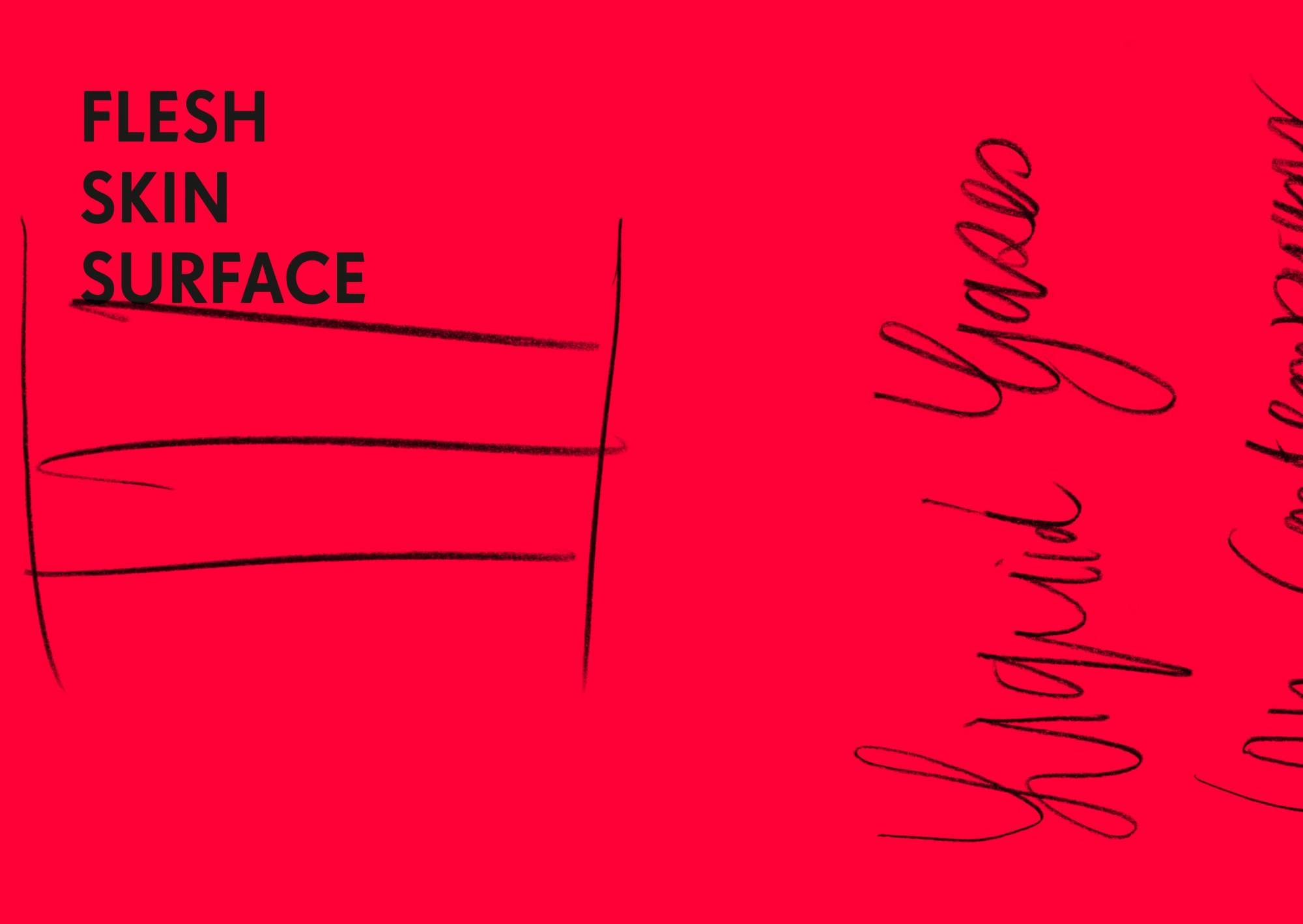
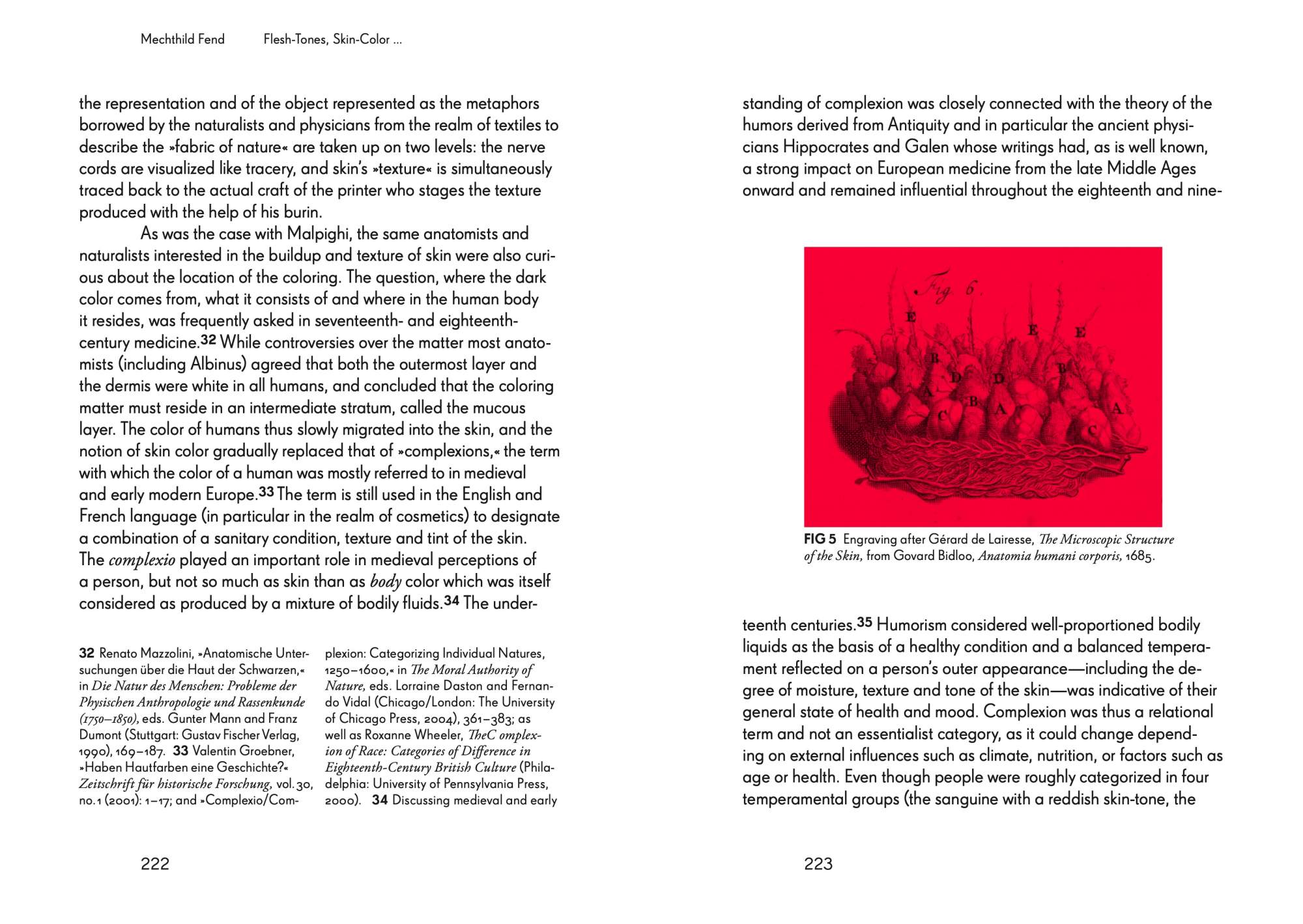
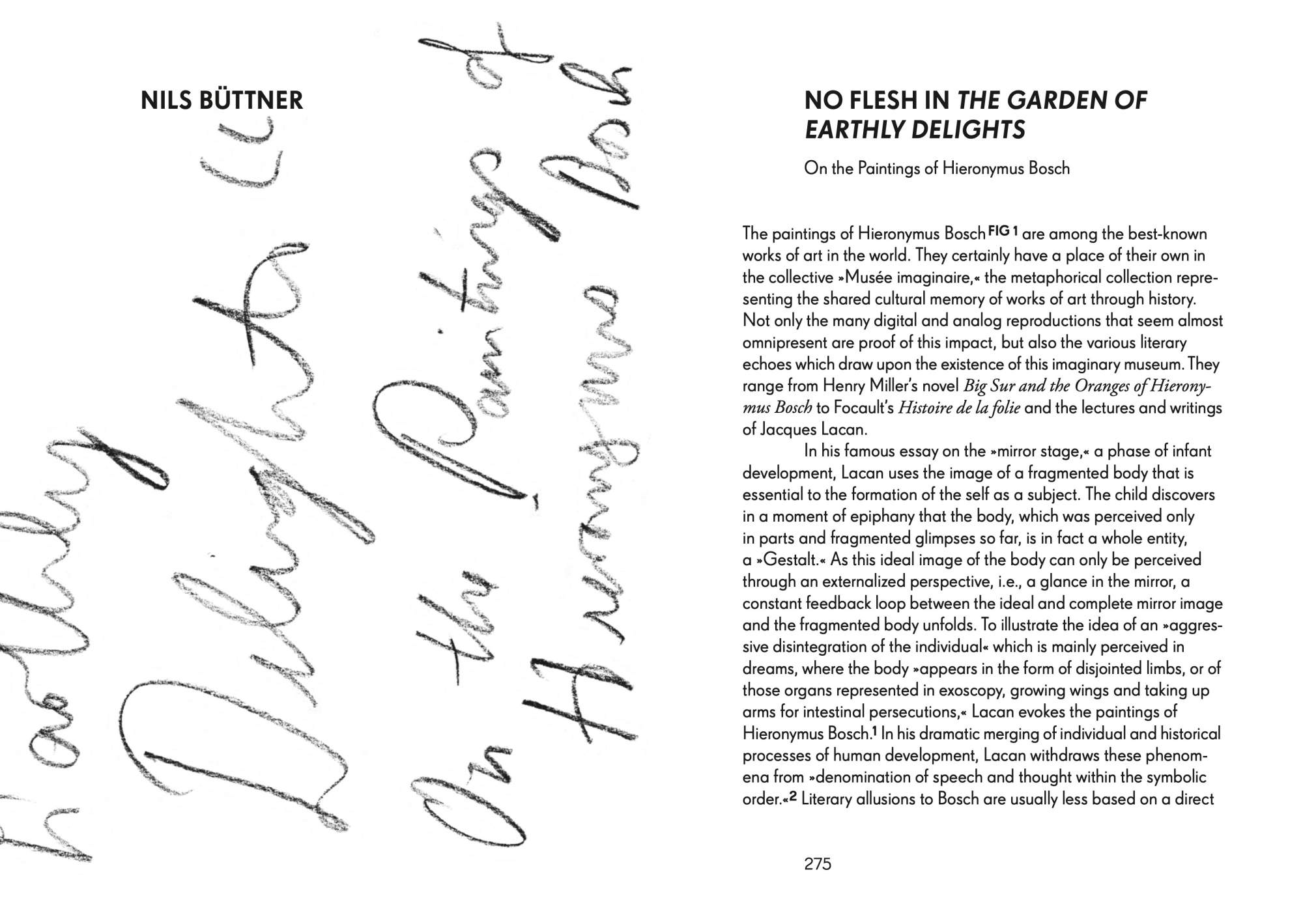
Softcover
€20.00
